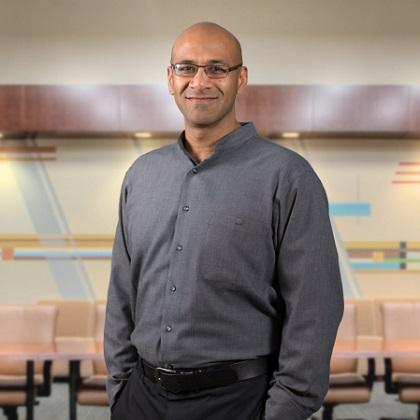Whither the Court at 20: Constitutional Experts Dissect Dynamic Docket

Following a U.S. Supreme Court term that included several impactful cases and a summer in which the so-called shadow docket made headlines, and with potentially landmark matters involving abortion and gun rights on the horizon, an esteemed panel of constitutional scholars from UCLA School of Law and elsewhere delivered a probing analysis at the 20th Whither the Court: The Allan C. Lebow Annual Supreme Court Review on Sept. 29.
The signature annual event, presented in memory of a beloved member of the UCLA Law Class of 1972, features experts who delve into the key cases and trends that currently characterize the Court. This year, the more than 300 people who tuned into the exclusive virtual presentation were treated to uncommon insight from a UCLA Law faculty member, Ahilan Arulanantham, who will deliver oral argument in the case of FBI v. Fazaga in November.
Adam Winker, the Connell Professor of Law and a renowned authority on Second Amendment gun rights and other constitutional issues, served once again as moderator of the event. He was joined by three UCLA Law faculty members — Professor from Practice Arulanantham, the co-faculty director of the Center for Immigration Law and Policy; Prof. Cary Franklin, the McDonald/Wright Chair of Law and faculty director of the Williams Institute; and Prof. Jon Michaels, a respected authority in constitutional and administrative law — as well as special guest Melissa Murray, the Frederick I. and Grace Stokes Professor of Law at NYU Law School and the host of the popular Strict Scrutiny podcast.
“Certainly, the Supreme Court is, in many ways, at a crossroads, making the question of Whither the Court? especially appropriate at this moment,” Winkler said in observing that the upcoming term will feature a significant conservative majority, for the first time in generations, after last year’s appointment of Justice Amy Coney Barrett. This “can be expected to reshape the Court in significant areas of constitutional doctrine.”
The panelists took turns evaluating decisions from the past term, including the religious rights case Fulton v. City of Philadelphia and the voting rights matter Brnovich v. Democratic National Committee, and looked ahead to the 2021-22 term. There, they shone a light on the abortion case Dobbs v. Jackson Women’s Health Organization and the Court’s first major gun rights case in many years, New York State Rifle & Pistol Association v. Bruen.
They identified another case to keep an eye on: FBI v. Fazaga, which involves government surveillance and the state secrets privilege. Arulanantham — who is among the nation’s leading civil rights advocates and previously argued in the Supreme Court on two occasions — will present oral argument before the justices on Nov. 8. At Whither the Court, he gave a peek into his case strategy and emphasized the fundamental issues at play. “The case itself arises out of really extensive surveillance by the FBI of Muslim Americans that started after 9/11, and it’s never really stopped,” he said. “There’s tons of FBI surveillance in the Muslim communities all throughout the country. That was really troubling to people, and now it’s become sort of normalized.”
“[This case] is extraordinarily important for a bunch of reasons,” Arulanantham added. “It’s a chance to hold the government accountable for discrimination that has just gone on ubiquitously against Muslim Americans for the last 20 years. It’s also, I think, really important for people interested in the NSA spying and all this sort of mass warrantless surveillance.”
The panelists also discussed the shadow docket, which Winkler described as “cases that are decided without the usual briefing and oral argument, and often decided without a written opinion.” Notable among these matters was the Court’s decision to let stand the recently enacted Texas law that restricts abortions. “In the shadow docket cases, we saw more division and disagreement [between the justices] than we saw in the ordinary cases over this past term,” Winkler said.
“Is this the [Chief Justice John] ‘Roberts Court’ any longer? I’m not sure that it is, and I will say that my views of this have really changed a lot over the course of the last few weeks,” Murray offered, noting that Court’s handling of the Texas abortion law indicated a possible decrease in Roberts’ influence. “We did not see the chief justice able to rein in the more conservative elements of the Court. He’s usually someone who can prevail upon his colleagues with institutionally minded arguments, [and I’m] not sure that we saw that in that particular case.”
Watch the full 2021 Whither the Court presentation on UCLA Law’s YouTube channel.